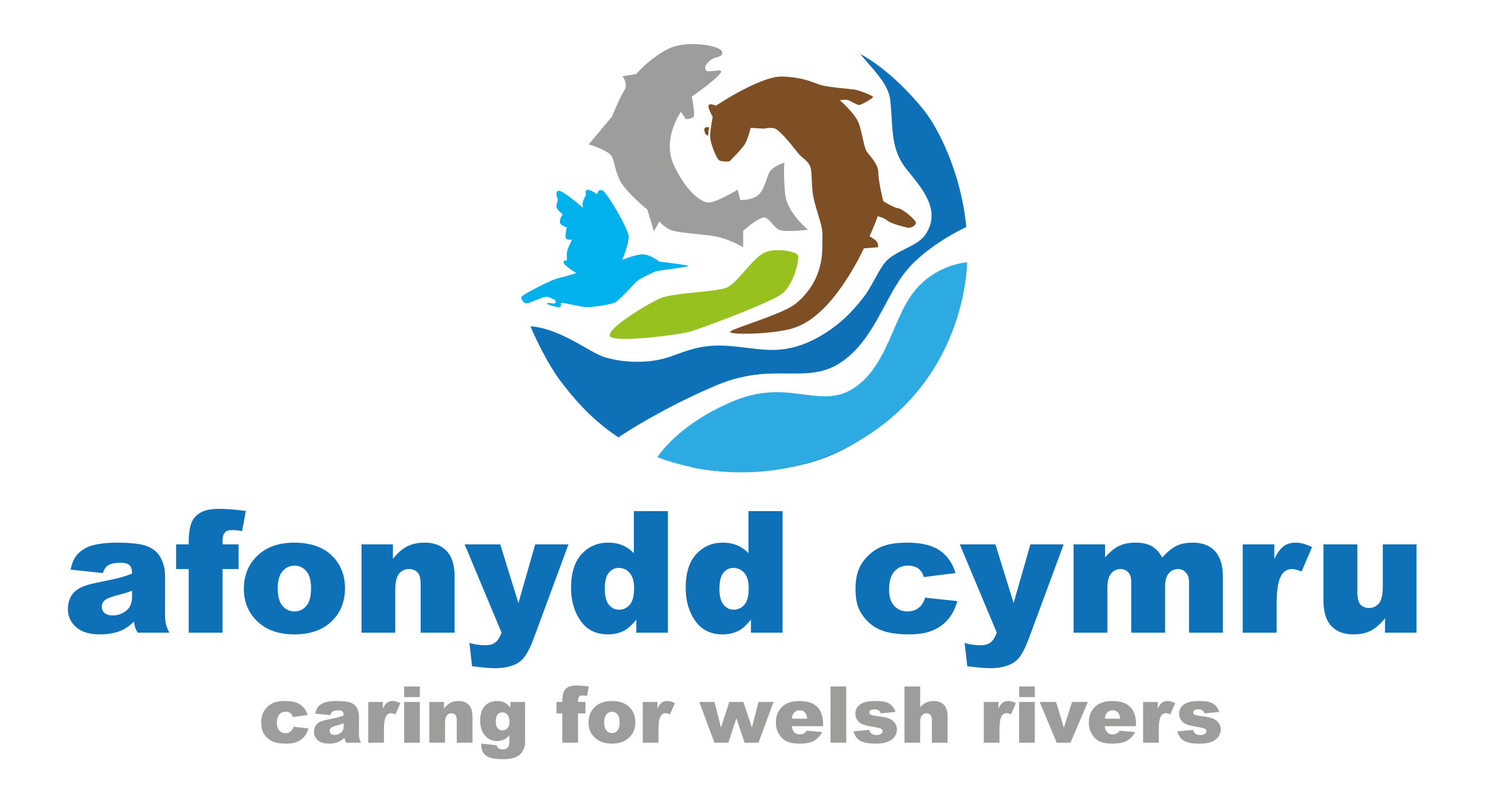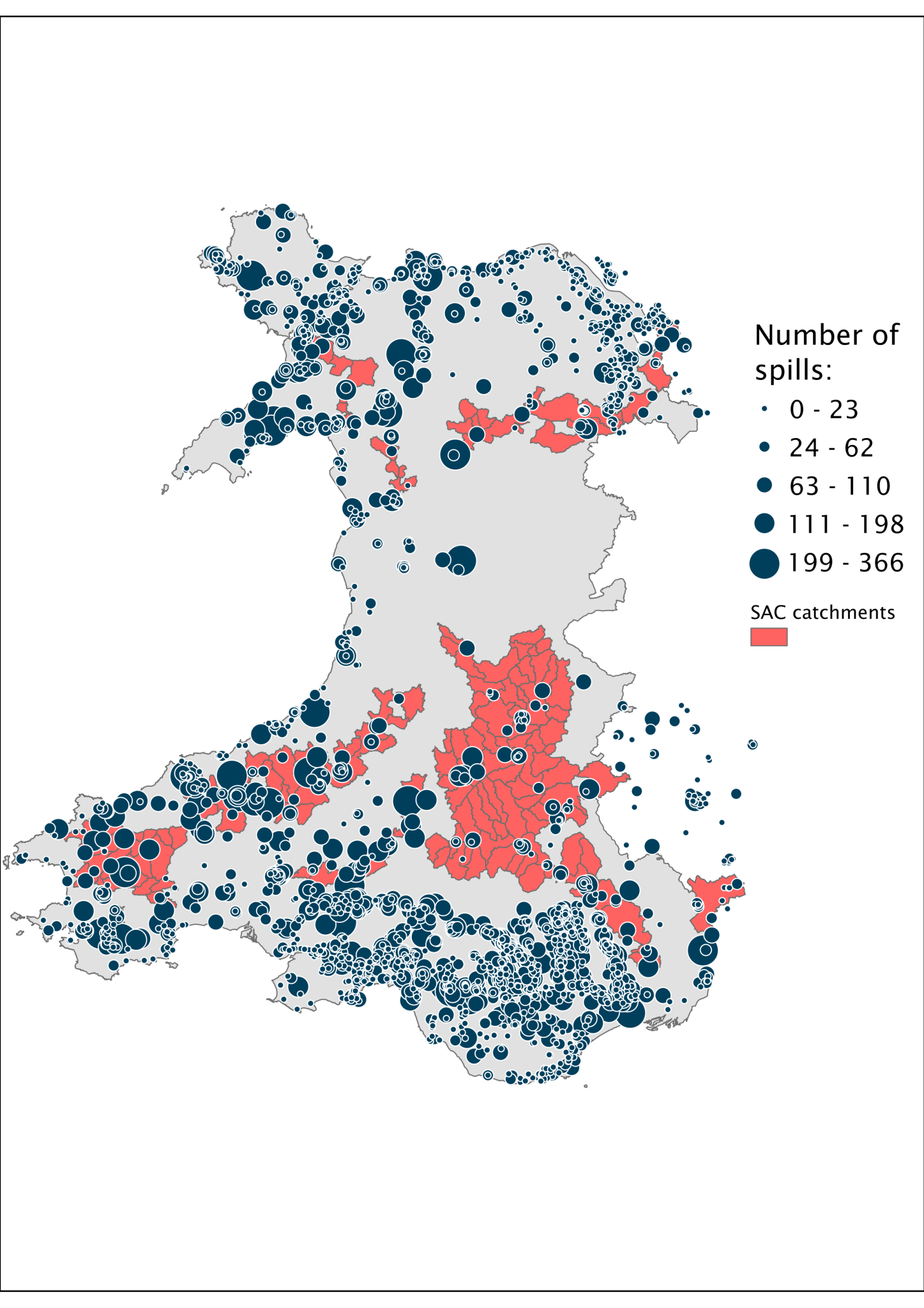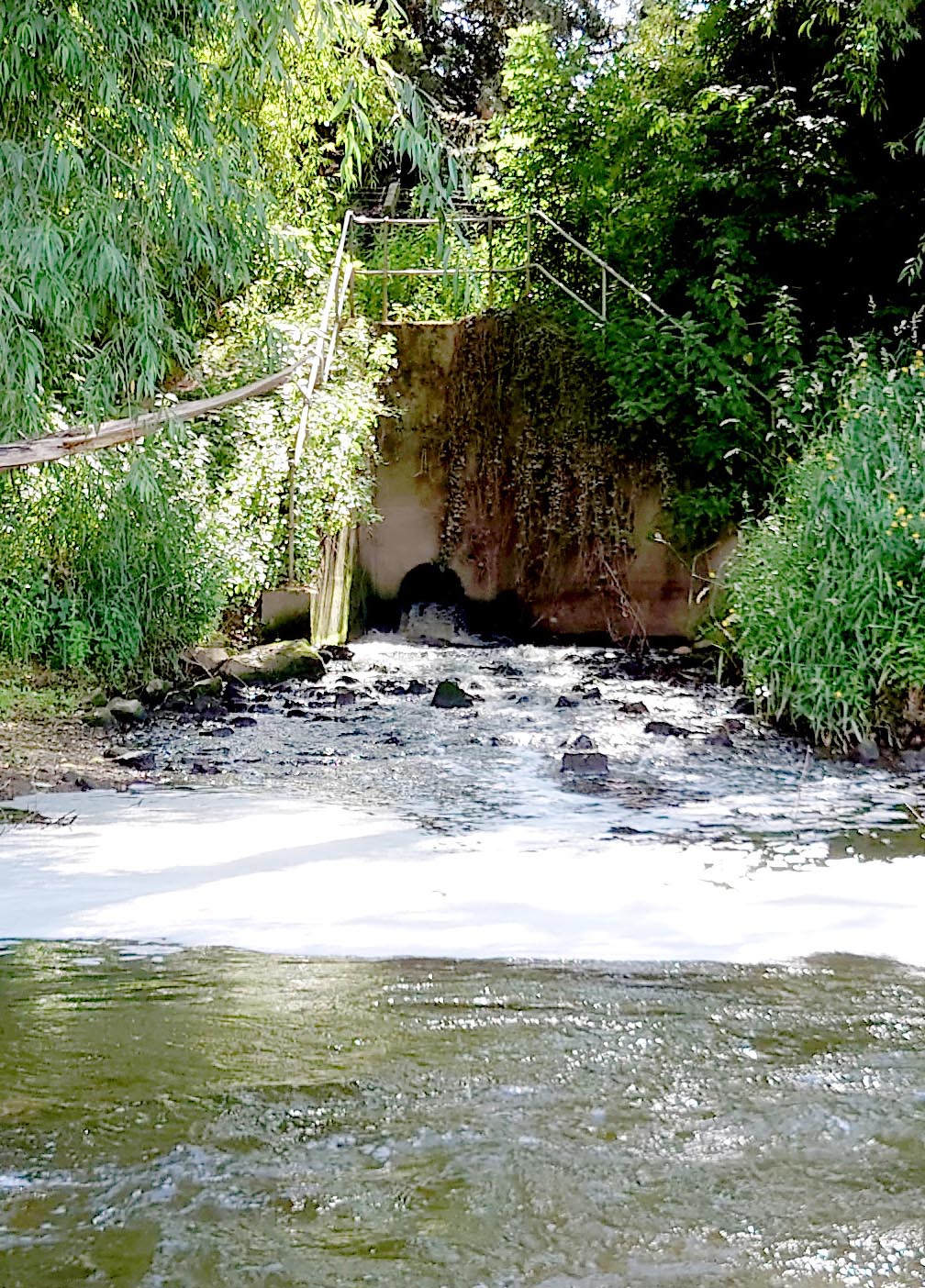The 2022 sewer overflow spill map generated using Welsh Water’s data. Click on the image for an enlargement.
Friday 31st March, 2023
Welsh Water is today releasing its data on sewer overflow performance across its assets in Wales and England for 2022. It shows that overall, there was a 12% reduction in the total number of sewer overflow discharges compared to 2021 and a 25% reduction in total spill duration.
The water company is the first to admit that these reductions reflect no material changes in sewer overflow operation but are more a reflection on the annual rainfall during 2022. Also, despite what appears to be an encouraging trend, it must also be noted that the water company’s sewer overflows were still operated for a total of 602,987 hours in 2022.
And while Welsh Water were the first UK water company to attain over 99% of sewer overflows being monitored, caution is still needed when looking at any water company’s discharge figures. Often, they do not tell us the full picture of the harm being done to water quality in rivers.
Spill number and duration data is quick, easy and useful for comparisons. But there are a number of important factors that it misses, particularly when it comes to environmental damage. It may sound obvious but a sewer overflow discharging into a small river in low flows will cause much more environmental harm than into a large river in medium to high flows. This important factor is never considered in frequency and duration data.
Spill number and duration data is quick, easy and useful for comparisons but it never tells the full picture of environmental harm being caused by sewage discharges
The same can be said for the concentration of the discharge. This can vary quite considerably before it enters the river but is also a vital factor in how damaging the sewer overflow is.
One of the commitments made by Welsh Government’s “Taskforce for Better Water Quality” is that all ecologically harmful sewer overflows will cease by 2030. As a result, Welsh Water are assessing environmental harm of their CSOs by monitoring ecology upstream and downstream. We expect Welsh Water to put forward an ambitious investment plan for resolving sewer overflows that are causing failure to achieve good ecological water quality status in the period 2025-2030 and we urge OfWat to ensure that this commitment is supported.
We are also awaiting the confirmation of the definition of ‘exceptional’ rainfall. Once this has been done, water company performance in Wales can be fully monitored against rainfall data and ensure permits are legally enforceable.
While much on the focus is on sewer overflows it must be remembered that for our rivers, outfalls from sewage treatment works cause far greater ecological harm. Also, we should not allow the UK media attention on sewer overflows to distract us from the sectors that are having the greatest impact on river water quality in Wales, particularly agriculture.


